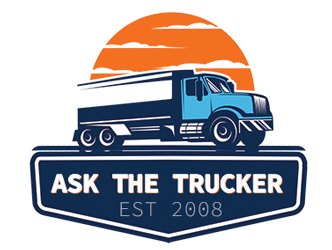Truck Parking Shortage Continues To Hurt Industry
If you have been trucking for long at all, you probably have run into a situation like this: You have driven your full shift for the day, and it is time for you to pull over and go to sleep. You look for spaces at the nearest truck stop, but they are all full. You press on, getting more and more exhausted. At each stop, you expect to find an open space, but you don’t. Finally, desperate for sleep, you pull over on the shoulder to catch some disjointed, anxious zzzzz’s.
It was not simply bad luck, and you are not the only driver to experience this. There is a severe trucking parking shortage right now, and it is affecting the entire industry.
What is the Truck Parking Shortage?
CBS News reports, “The National Transportation Safety Board is looking into a hidden danger on the highways: A nationwide shortage of parking spaces for large trucks.”
CBS continues, “The American Trucking Associations says drivers are forced to park in such areas because there is only one rest area parking space for every 11 trucks on the nation’s roads. In multiple states, CBS News found big rigs parked on freeway and rest stop shoulders and crowding roads leading into rest stops that were already full of parked trucks.”
Think about that for a moment. 10 out of 11 truckers on the highway at any given time are not going to have a rest area parking space available if they need it at that time.
The Department of Transportation Federal Highway Administration has also discussed this issue, writing, “Truck parking shortages are a national safety concern. Commercial truck drivers need access to safe, secure, and accessible truck parking. With the projected growth of truck traffic, the demand for truck parking will continue to outpace the supply of public and private parking facilities and will only exacerbate the truck parking problems experienced in many regions.”
Why is the Shortage of Truck Parking Spots So Dangerous?
There are multiple dangers to the truck parking spot shortage:
- Driving too long: A driver who cannot find a parking spot may find themselves still on the road hours after they should have pulled over to rest. Driving while exhausted can be just as dangerous as driving while intoxicated. Some drivers may even fall asleep at the wheel.
- Waking up tired: If a driver pulls over somewhere unsafe to sleep (see below), they may not get very high quality sleep. When they wake up, they may feel groggy and distracted. So, they may continue to drive dangerously even after resting.
- Drivers parking in unsafe places: Eventually, a driver who cannot find a safe parking spot will be forced to pull over somewhere else. This could be an exit ramp, a shoulder, a parking lot not designed for this purpose, etc. They will have all their lights off, and other drivers will have a hard time seeing them.
It is not uncommon for parking in unsafe places to lead to injuries or fatalities. CBS explains how this can happen, offering the following example:
“Mario Gonzalez died in July on his way home from visiting his family when his pickup slammed into the back of a semi-truck parked on the side of a rest stop service road off Interstate 37 south of San Antonio. Gonzalez was speeding before he hit the brakes seconds before the impact. It was dark and the big rig did not have lights on.”
CBS adds, “Gonzalez died two days after a hauntingly similar crash in Illinois killed three people when a Greyhound bus hit several big rigs parked along a rest stop access road.”
Where Can I Park My Semi-Truck Overnight?
Are you searching for “parking for semi trucks near me”? Obviously, the ideal answer is to park at a truck stop. Truck stops feature large spaces that are designed for semi-trucks, and their entire purpose is to allow truck drivers to sleep safely through the night without endangering others on the road.
But as we have discussed, truck parking lots like these can fill up quickly. Even if you were willing to end your day early to find a spot, you might still find all the truck stops full.
As far as alternatives go, you can consider parking lots at other locations such as department stores, shopping malls, grocery stores, and even sometimes fast food restaurants.
Wherever you end up parking, here are a few important rules of thumb:
- Off the road or ramps: Do not park to sleep on a ramp or road! Do not even let yourself be tempted to do this if you are out in a rural area and you think no one will use that road all night. Remember, if you are assuming the road is safe, then a driver on that road is going to be assuming the same thing. They may speed headlong into you as a result in the dark. Always park off the road!
- Hard ground: In general, it is best to avoid shoulders, as they are dangerously close to the road, and it will usually be dark. If you do find a well-lit, spacious shoulder that provides ample clearance, however, it may be okay. But one thing to pay close attention to is the ground. If it is soft and it starts raining, there is a chance that your vehicle will sink in enough that it will be hard to get moving again.
- Legality: Obviously, you should not park somewhere illegal to sleep, unless you really are about to pass out at the wheel. Just be aware that you could wake up to a ticket (which would not be awesome, but it is better than falling asleep while driving).
- Sufficient space: As we mentioned, clearance is important. Whether you are parking in a lot or somewhere else, ensure that there is enough room around your vehicle that others can get around you without endangering themselves or you.
- Well-lit: One of the most important things to look for when you are parking outside of a truck stop is that it features ample lighting. Parking somewhere that is poorly-lit or not lit at all can be one of the most hazardous things you can do. Choose a spot that is lit by one or more streetlights if you can.
There may be additional considerations when you are choosing where to park. You will become more and more aware of what constitutes a good or bad parking spot as you drive. But hopefully these basic tips will help you to steer clear of dangerous situations as you try to catch some rest on your routes.
How Long Can You Park at a Truck Stop?

If you do get a spot at a truck stop, you may be wondering how long you can park there. Hypothetically, the answer is “no time limit,” though it would not be realistic to stay there for days. Eventually, you would be booted out (plus, it is unlikely you would have a reason to want to do that anyway).
You can show up at any time at a truck stop and leave at any time. If a space is open, you can use it. The general expectation is that you are going to sleep, eat, take care of basic hygiene and personal care, and depart.
How long that takes is going to vary from driver to driver. In most cases, we can assume a driver will sleep for at least 8 hours, and maybe take another 1-2 hours beyond that for additional rest and activities. So long as you are not abusing your privileges, truck stops are not going to harangue you to get out.
What is Being Done About the Situation?
One last question you may have is whether anything is being done to remedy the serious lack of truck parking lots and spaces.
The DOT page we linked before discusses the National Coalition for Truck Parking, which was developed to try and speed along the creation of new truck parking spots.
This page also discusses new legislation. DOT explains, “Section 1401 of MAP-21 (PL 112-141), also known as ‘Jason’s Law,’ was established to provide a ‘national priority on addressing the shortage of long-term parking for commercial motor vehicles on the National Highway System to improve the safety of motorized and non-motorized users and for commercial motor vehicle operators.”
K&E, a professional concrete flatwork company explains in a blog post that there is ample business to be found in constructing new trucking parking spaces.
What zoning is required for truck parking? In most cases, according to K&E, it is only legal to build parking for trucks in industrial zones.
In fact, zoning restrictions are among the factors that K&E cites as reasons for the trucking parking shortage, along with other issues such as poor state coordination, condemned property, a lack of state funding, limitations on where truckers are allowed to drive, and more.
All of these factors will need to be addressed collectively for us to see a major improvement in the number of trucking parking spaces available.
In the meantime, truckers will need to do their best to make due when truck stops are full. Just remember that it is never worth it to compromise on your safety or that of other drivers when you decide where to park and sleep.
Try and plan ahead as best you can. Check your route for possible parking areas, keeping in mind that your preferred options may not be available. Sometimes, you may need to pull over early for the night. As frustrating as that is, it is better than taking risks that could result in serious accidents. No one wants to be slow to deliver a shipment. But it is better for it to arrive a little late than not at all.

